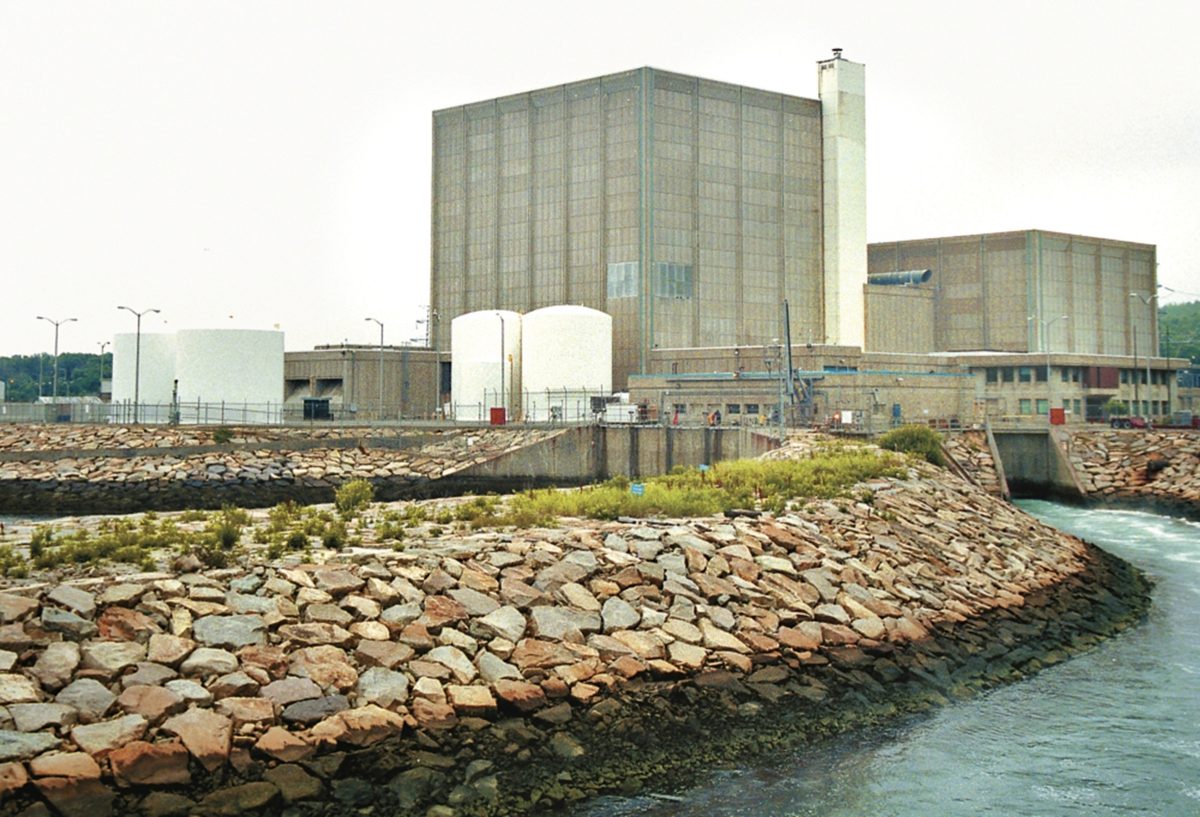Harvard University professor Petros Koutrakis plans to study cancer rates and household radioactive levels in the area surrounding the shuttered Pilgrim nuclear power plant in the Manomet section of Plymouth.
The study comes amid increasing concerns about evaporated wastewater from the plant, which shut down nearly five years ago. Koutrakis said his goal is to add independent scientific analysis to the debate.
“We are going there with open minds, as we should be (as) scientists, and whatever we see we will report it,” he said.
Holtec, the company in charge of decommissioning the plant, has said that the level of water vapor being discharged is lower than when the plant was operating. The company has said the water vapor is the result of heaters being immersed in wastewater to keep the plant warm enough for workers.
Koutrakis, professor of environmental sciences at Harvard’s T.H. Chan School of Public Health, has applied to obtain data from the Massachusetts Cancer Registry, which collects incidence of different cancers by town.
He has also received a $20,000 grant from Harvard to conduct a study to detect whether radioactive materials are contained in dust that settles in homes around the former Pilgrim plant. How many homes are included in the study depends on whether Koutrakis can get more funding from other sources. He anticipates surveying homes within a 50-kilometer radius of the former plant, or about 31 miles, but the study could also include downwind homes on Cape Cod outside of that radius. That might include Eastham, Orleans, Chatham, and Harwich.
A research team will look for radioactive substances such ascesium and lead-210. Koutrakis also wants to look for iodine 131 from evaporated wastewater from the plant, something he said is tricky because of the short life of that isotope, which makes it difficult to detect. Tritium, another isotope released by evaporation of wastewater from the plant, would be harder to find inside homes, he said.
Koutrakis is using data from the Massachusetts Cancer Registry for the study of prevalence of cancer around Pilgrim. He said he anticipates having results of the cancer study by summer, provided his team gets the data from the Registry.
He said it is harder to predict when his team will have results of the study it plans to conduct inside homes. That is contingent on funding, when the team can begin its work, and how fast lab results come back.
Koutrakis’s epidemiological study will be conducted at other nuclear power plant sites as well as at Pilgrim.
Fred Thys can be reached at fred@plymouthindependent.org

